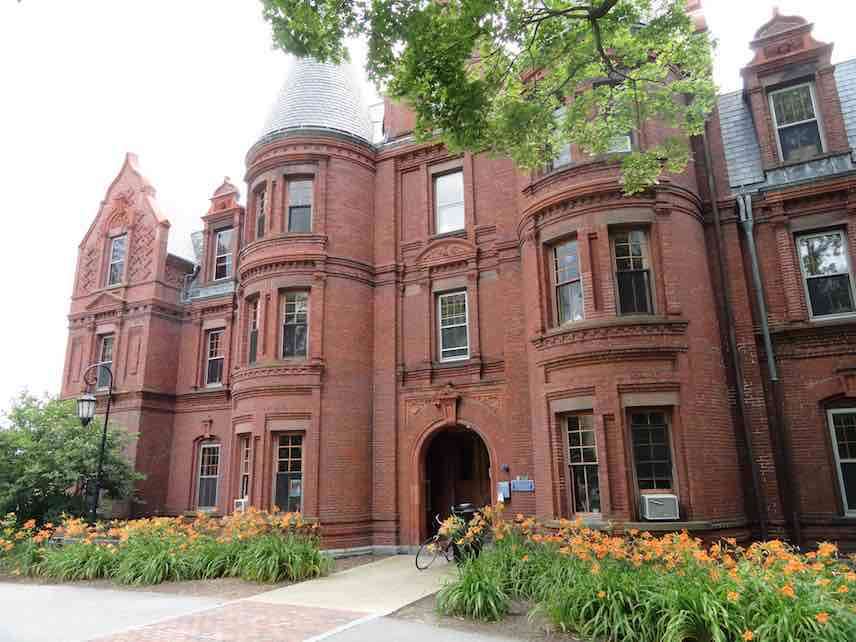Wellesley College Activists Protested Author Alice Dreger for Being Transphobic, Even Though She's Not
"Where were these people getting their ideas, I wondered, about gender identity development, about the supposed gender binaries of the world, and about me?"

Alice Dreger, an historian and bioethicist who resigned from Northwestern University after administrators censored her writing, spoke to students at Wellesley College earlier this month. Her visit provoked a sizeable protest from activists who view her as an enemy of the transgender community, even though Dreger's views are not remotely transphobic.
"When you have someone like this being brought to campus, it's very upsetting for us because we're not widely recognized by society, or even just within the student body," Mads Casolari, a Wellesley student, told The Wellesley News. "The student body's getting a lot better about being accepting of trans people and using gender-neutral language, but even then there's a lot of exclusion."
Activists circulated an email claiming that Dreger promotes negative stereotypes about trans people and that it was irresponsible for the Wellesley Freedom Project—a Koch-funded effort to bring an ideologically diverse range of speakers to campus—to feature her. During the event, which took place on February 13, the activists gathered in a hallway outside the room where Dreger was giving her remarks. They did not attempt to shut down the event. Their signs said things like, "Trans Women Are Women!" and "Trans sibs belong."
Given the reaction, one might expect Dreger—author of the excellent Galileo's Middle Finger, a book about social justice activism's frequently hostile relationship with objective science—to harbor views like those of the conservative pundit Ben Shapiro, who thinks being transgender is a mental illness. But Dreger believes no such thing. As she wrote in a blog post about the Wellesley event:
Apparently, [the activist students] had been led to believe I am a sworn enemy of transgender rights. So, it must have been confusing when I explained that I am against the state determining what our legal gender identities are, that I support all mature individuals determining their social and legal gender identities, and that I believe medical insurance (including public insurance) should pay for transgender interventions if an informed, consenting person believes she or he will be helped by them.
Nevertheless, Dreger was smeared as a supporter of "gender conversion therapy," which led to this exchange during the event:
Earlier, in the Q&A after my talk, one of the protesters who had bothered to come in to it asked me whether it was true I believed in "gender conversion" therapy. I asked what this was supposed to mean. The questioner said it meant trying to convince a child that her gender is really that which matches her natal sex, not what she has declared.
My reply was that if a female child came to a "gender clinic" and said she was a boy, I think it is quite reasonable—indeed, clinically responsible—to ask her why she feels that way. If she says she thinks she is a boy because she wants to grow up to enter a traditional-male field—say construction work—and wants to marry a woman, it makes sense to explain to her that girls can grow up to be women construction workers who marry women. Was that conversion therapy? It seemed to me otherwise. (Good ole-fashioned feminism. And good clinical care.)
Where were these people getting their ideas, I wondered, about gender identity development, about the supposed gender binaries of the world, and about me?
Where indeed? Dreger noted that some of her critics have set up fake social media accounts to impersonate her—she has occasionally been accused of saying things that she never actually said. Thankfully, the talk, and the subsequent conversation with the protesters, gave Dreger the opportunity to clear up some misconceptions.
"All in all, I think the engagement at the Wellesley protest went well, even if it was an ironic lesson in the social construction of identity," Dreger wrote. "A number of students came up to me to say they had really had their minds opened by realizing what they're told about someone might not at all be true. A few told me they were planning to push back against the problem of what amounts to falsehood-based activism."
That's the benefit of allowing controversial speakers to visit campus and share their perspectives—even if some students find them offensive. The offended might discover they were wrong to feel that way, or that the situation is more complicated than it appeared.


Show Comments (21)